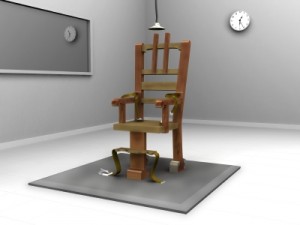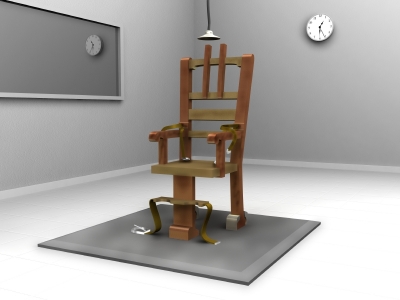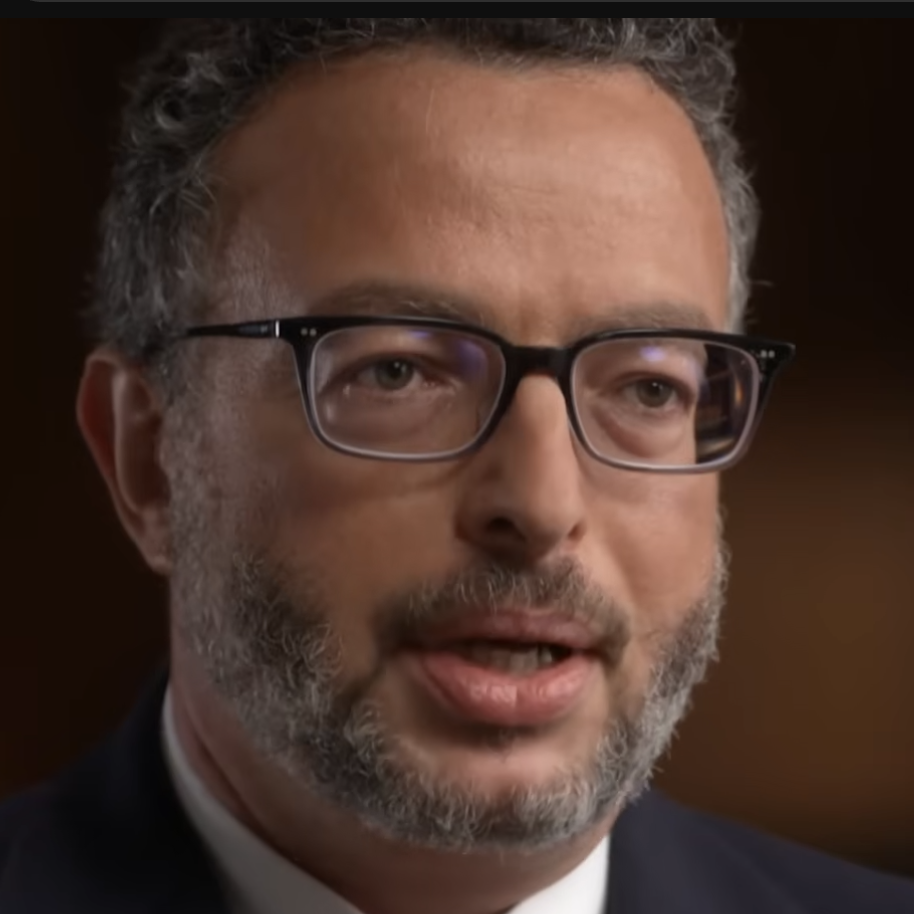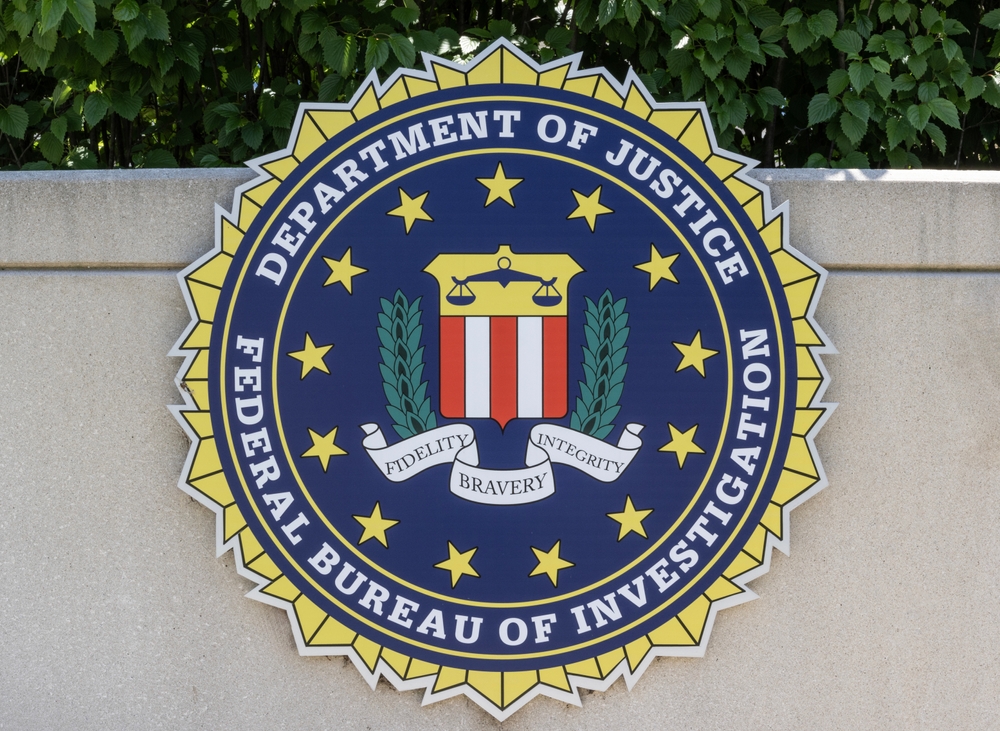 Steve Neavling
ticklethewire.com
Steve Neavling
ticklethewire.com
As many as 27 people were convicted of the death penalty by exaggerated scientific testimony, an unprecedented federal review of old criminal cases shows, the Washington Post reports.
The review found that FBI forensic experts may have mistakenly linked to defendants to the exaggerated testimony.
In one case in May, the review led to an 11th-hour stay of execution in Mississippi in May.
How many people were wrongfully convicted will be further studied, the Post wrote.
The outcome may have a lasting impact on the wisdom of the death penalty.






see link for full story
http://www.washingtonpost.com/local/crime/us-reviewing-27-death-penalty-convictions-for-fbi-forensic-testimony-errors/2013/07/17/6c75a0a4-bd9b-11e2-89c9-3be8095fe767_story.html
U.S. reviewing 27 death penalty convictions for FBI forensic testimony errors
Wednesday, July 17, 2013
An unprecedented federal review of old criminal cases has uncovered as many as 27 death penalty convictions in which FBI forensic experts may have mistakenly linked defendants to crimes with exaggerated scientific testimony, U.S. officials said.
Independent scientists critique suspect forensic work
Select a name below to see case reviews
Benjamin Boyle
Donald Gates
John Huffington
Newton Lambert
Full list of 137 cases identified by the Post
It is not known how many of the cases involve errors, how many led to wrongful convictions or how many mistakes may now jeopardize valid convictions. Those questions will be explored as the review continues.
The discovery of the more than two dozen capital cases promises that the examination could become a factor in the debate over the death penalty. Some opponents have long held that the execution of a person confirmed to be innocent would crystallize doubts about capital punishment. But if DNA or other testing confirms all convictions, it would strengthen proponents’ arguments that the system works.
FBI officials discussed the review’s scope as they prepare to disclose its first results later this summer. The death row cases are among the first 120 convictions identified as potentially problematic among more than 21,700 FBI Laboratory files being examined. The review was announced last July by the FBI and the Justice Department, in consultation with the Innocence Project and the National Association of Criminal Defense Lawyers (NACDL).
The unusual collaboration came after The Washington Post reported last year that authorities had known for years that flawed forensic work by FBI hair examiners may have led to convictions of potentially innocent people, but officials had not aggressively investigated problems or notified defendants.
At issue is a once-widespread practice by which some FBI experts exaggerated the significance of “matches” drawn from microscopic analysis of hair found at crime scenes.
Since at least the 1970s, written FBI Laboratory reports typically stated that a hair association could not be used as positive identification. However, on the witness stand, several agents for years went beyond the science and testified that their hair analysis was a near-certain match.
The new review listed examples of scientifically invalid testimony, including claiming to associate a hair with a single person “to the exclusion of all others,” or to state or suggest a probability for such a match from past casework.
Whatever the findings of the review, the initiative is pushing state and local labs to take similar measures.
For instance, the Texas Forensic Science Commission on Friday directed all labs under its jurisdiction to take the first step to scrutinize hair cases, in a state that has executed more defendants than any other since 1982.
Separately, FBI officials said their intention is to review and disclose problems in capital cases even after a defendant has been executed.
see link for full story
http://truth-out.org/news/item/9394-so-the-fbi-sent-out-an-agent-to-check-up-on-my-foia-request
So Then the FBI Sent Out an Agent to Check Up on My FOIA Request …
Tuesday, 29 May 2012
Leopold FBI DocumentFBI agent Bill Tidwell’s report about the visit he made last August to the residence of Hesham Abu Zubaidah to question him about a Freedom of Information Act request for his FBI files made by Truthout lead investigative reporter Jason Leopold.Early last year, I discovered that Abu Zubaidah, the first high-value detainee who was held in top-secret CIA black site prisons and brutally tortured, has a younger brother who lives in the United States.
Research I was conducting on the accused terrorist led me to a three-year-old comment posted on Guantanamo reporter Andy Worthington’s blog about Abu Zubaidah, the alleged terrorist, left by someone who identified himself as Hesham Abu Zubaidah.
“Yes that is my brother and I live in Oregon,” the commenter said. “Do you think I should have been locked away for 2 years with no charges for a [sic] act of a sibling? I am the younger brother of [Abu Zubaidah] and I live in the USA. Tell me what you think.”
Wow! This is a big deal, I thought. What’s Hesham’s story? Why haven’t we heard from him before? And what could he tell me about his brother, the alleged terrorist?
I tracked Hesham down to Florida. He had a fascinating tale to tell, which I have spent the past 14 months fleshing out. The result is a 15,000-word investigative report published on Truthout today about Hesham’s pursuit of the American dream and the high price he paid because he says he shares a surname with an older brother who is an infamous alleged terrorist.
In addition to the disturbing revelations about the government’s treatment of Hesham over the past decade, my report also contains the first new details about Hesham’s brother, who is referred to in my investigative report by the nickname his father gave him,”Hani.” In April 2000, Hani made three telephone calls to the United States when he was supposedly under surveillance. Former Sen. Bob Graham, who co-chaired the joint Congressional inquiry into the 9/11 attacks, told me the calls should have been shared with his panel and the so-called independent panel set up to investigate the attacks but wasn’t.
Moreover, Hesham revealed to me that, back in October 2010, he was subpoenaed to appear before a federal grand jury in Richmond, Virginia, to confirm that his brother was the person in a videotape speaking about jihad and 9/11, which was later used in the war crimes tribunal of a Guantanamo detainee.
Hesham was also recruited by the FBI as a confidential informant. For nearly three years, Hesham was tasked with spying on congregants at Sunni and Shia mosques in Portland, Oregon, and was told by his FBI handler to pay close attention to an imam at the Masjed As-Saber mosque named Sheikh Mohamed Abdirahman Kariye, a native of Somalia, who the FBI has been trying to link to al-Qaeda and Osama bin Laden for at least a decade. Hesham said he agreed to work as an informant because his FBI handler led him to believe the bureau would help him obtain US citizenship.
My investigation turned into a yearlong project, largely due to the fact that I had filed numerous Freedom of Information Act (FOIA) requests for records on Hesham with several government agencies and waited many months for responses. It was the FBI’s response to my FOIA on Hesham that led me to believe his story was bigger than I had originally thought it to be.
Hoping to gain deeper insight into his work as an FBI informant and the role he says the FBI played in his immigration case, I asked Hesham for permission to file a FOIA request with the bureau for his entire file. He agreed and signed a certification of identity form requesting that the agency turn over all of the records it maintained on him to me. Hesham visited a notary public and had the certification of identity form he signed notarized.
My FOIA request was filed in May 2011. The FBI sent me a letter that said the bureau’s FOIA office was processing my request. Then, last August, the FBI sent out a special agent from the FBI’s Tampa field office to speak with Hesham about my FOIA.
Listen to Jason Leopold discuss this report on the Peter B. Collins Show
Bill Tidwell showed up at the home of Hesham and Jody Abu Zubaidah, his wife, on the morning of August 26, 2011. Hesham was at work. Jody’s mother, who was living with the couple at the time, answered the knock at the door. She told Jody there was “some guy in a suit at the front door.”
Jody stepped outside and Tidwell flashed his FBI badge. He said he needed to speak with Hesham. Tidwell said Hesham wasn’t “in any trouble, but it was important.” Jody told Tidwell Hesham was at work. Tidwell returned later that afternoon. Tidwell told Hesham he was sent by FBI headquarters to speak with him about the FOIA request I filed. Tidwell used my name. The agent asked Hesham how I found him and what my intentions were. Hesham told him that I was writing a story about him and that he told me “everything.” Tidwell asked Hesham to brief him on what he had told me.
“Did Jason Leopold force you to sign [the certification of identity] form? Did he offer you any money?” Tidwell asked Hesham.
“No,” Hesham said. “I am not being paid.”
Jody, who was present during the meeting, took meticulous notes.
“Listen, I don’t know what’s in your file but you do understand that once it’s released, all of that information on you will be public and everyone will see it,” Tidwell said.
“Yes,” Hesham said. “I know. That’s what I want.”
“I believe there may be information in there some people don’t want publicized,” Tidwell said. “Why do you need Jason Leopold to get this information out?”
Hesham told the special agent his life story and the “spying” he did for the bureau. He said that he has been living in limbo for the past decade as a resident – but not a citizen – of the United States. No one was helping him, and he felt the time was right to tell his story. He told Tidwell what his FBI handler informed him when he asked her if she could help him obtain a green card that his case was stuck on a shelf and couldn’t be touched.
“Whose life deserves to be stuck on a shelf?” Hesham asked Tidwell.
Tidwell and Hesham spoke for two hours. Before he left, Tidwell told Hesham he was going to write up a report and talk to the officials at headquarters who sent him out to meet with Hesham.
“I am going to call the person who sent this to us and tell him exactly what you said,” Tidwell said. “He may say ‘okay.’ Or he may say, ‘let’s just get this man the security that he wants so this can go away.'”
If it’s the latter, Tidwell asked, would you drop the FOIA?
“No way,” Hesham said. “Forgive me, but I don’t trust you guys.”
Hesham then led Tidwell to his driveway and showed him his boat. They spoke for a few more minutes and then shook hands and Tidwell left.
When the agent left, Jody called me and told what transpired. She said she took detailed notes. I was stunned. I have never heard of the FBI sending out a field agent to check on a FOIA. I called FBI headquarters and spoke with Kathleen Wright, a spokeswoman for the bureau and asked her about it.
Wright said the “visit” was “routine” and that “the FBI has an obligation to abide by the Privacy Act.”
“Agents spoke with Hesham Abu Zubaydah to confirm the FOIA request was legitimate and submitted with hi consent and knowledge.” Wright said.
She added, “This happens all of the time.”
Brad Moss, an open government expert who specializes in national security issues, disagreed.
“I’ve never heard of the FBI expending this kind of resource and going to an individual’s house and asking if the reporter coerced the individual who signed the waiver,” said Moss, an attorney with the Mark S. Zaid law firm in Washington, DC. “Given the nature of who this individual is, I am not surprised they would have concerns. With all of the budget cuts and pressure to process FOIA requests, it seems out of the ordinary to send an agent to someone’s house. As far as I am concerned, it’s unprecedented. You could have submitted this request without the waiver given the overwhelming public interest.”
Kel McClanahan, another open government expert who heads up the public interest law firm National Security Counselors, said he queried several colleagues, many of whom are government FOIA analysts who work at the Justice Department, about the “routine” visit.
“Not one had heard of this [being] ‘routine,'” said McClanahan, whose firm represents me in a lawsuit we filed against the FBI for violating a provision of FOIA when I sought pertaining to Hesham’s files. “I sent an inquiry to David Hardy [head of FBI FOIA] about it, and I’m still waiting on the answer. I guess he’s still thinking about it.”
McClanahan added, “while the FBI might have reason to deny the request if the waiver was coerced, I’m aware of no legal restriction against a person being provided reasonable compensation for access to his government records.”
“So even if the visit was routine, the questions definitely weren’t,” McClanahan said. “A routine visit would have consisted of ‘Did Jason Leopold coerce you into signing this waiver?’ ‘No.’ ‘Are you sure?’ ‘Yes.’ ‘OK, thanks for your time.'” [Full disclosure: McClanahan and I sued the FBI earlier this year for violating a provision of FOIA in response to specific questions about Hesham’s case file.]
Coleen Rowley, a former FBI special agent who blew the whistle on the bureau’s pre-9/11 intelligence failures, said she’s not surprised the FBI sent an agent out to personally speak with Hesham about my FOIA.
“The FBI considers informant matters the most sensitive things in the world,” Rowley told me.
After I spoke with Wright, the FBI spokeswoman, I filed another FOIA for documents and notes about the meeting between Tidwell and Hesham, since my name was used. It took the bureau about six months to respond. In April, I received three redacted pages. Tidwell’s notes were not turned over, just a report he sent to “records management” summarizing his interview with Hesham.
Tidwell’s name, which was also redacted from the interview report, says:
FBI interview report pertaining to Jason Leopold’s FOIA (p. 3)
Tidwell’s report claimed that Hesham told him he signed “the privacy statement for Leopold in hopes an article written by Leopold would help him gain status in the US and obtain a green card.”
“Abu Zubaidah advised the article is not something he wants written, but he feels he has no other option,” Tidwell’s report says. “Abu Zubaidah currently has no status in the US and is fearful he could be deported at any moment. [Redacted] Abu Zubaidah feels he has proven he is not a terrorist and considers himself an American. Abu Zubaidah fears he [redacted] if he does not gain status in the US. He hopes the article will be read by someone who can help him with this matter.”
In another redacted section of Tidwell’s report, he noted the circumstances that led me to contact Hesham:
FBI agent Tidwell discussing how I contacted Hesham (p. 4)
The report goes on to say:
FBI report notes Hesham’s authorization was voluntary (p. 5)
Last September, after Tidwell filed his report, the FBI sent me a letter saying the bureau “located approximately 1,200 pages which are potentially responsive to my FOIA request.”
The documents have been in the possession of a “disclosure analyst” since last September, according to David Sobonya, an FBI FOIA spokesman.
To be continued …
Any smart criminal justice consumer worth their salt would ask:
Did FBI agents follow the Bill of Rights when they assassinated President Kennedy
and Martin Luther King?
Did FBI agents follow the Bill of Rights when they created the 1993 1st World Trade Center
bombing, Oklahoma City bombing and 911?
see link for full story
http://www.realclearpolitics.com/video/2013/07/16/rand_paul_i_want_to_know_if_fbi_is_following_the_bill_of_rights_when_using_drones_for_surveillance.html
Posted on July 16, 2013
Rand Paul: I Want To Know If FBI Is Following The Bill Of Rights When Using Drones For Surveillance
Sen. Rand Paul (R-KY) said he would put a hold on the nomination of James Comey as FBI director to get more information on how the federal government is using drones.
“I’m trying to get a real truth. Is the FBI using the Bill of Rights? Are they seeking a warrant from a judge before they spy on us?” Sen. Paul said on FOX News this afternoon.
see link for full story
http://americablog.com/2013/07/obama-fbi-nominee-james-comey-not-good-guy.html
also available in Braille for the uneducated and the uneducable
Obama FBI nominee James Comey is not a Good Guy; he’s just less bad than Cheney
7/17/2013
Update: Listen to this Righteous Rant by humorist Matt Filipowicz for more on eager torturer James Comey. Makes you wonder, doesn’t it?
________
Consider this a warning against left-wing hero-worship of bogus right-wing posterboys. By whom I mean Obama FBI Director-nominee James Comey, he of the Ashcroft Hospital Drama™. (Note the implicit lionizing at the link by the National Journal.)
Think Comey is a Good Guy? Rick Perlstein has the goods (my emphasis):
Some of us have been shouting from mountaintops, others from molehills: James Comey, currently sailing smoothly through Senate Judiciary Committee hearings for confirmation as chief of the Federal Bureau of Investigation, was:
(a) in charge, and proudly so, of a “terrorism” case that began with a detention without charges, continued with made-up and spurious charges, and ended with a conviction won against an American whose treatment during confinement (on the American mainland) turned his brain to jello;
(b) general counsel for a defense contractor while it was busy hushing up a whistleblower who exposed $24 billion contract that they were building vessels for the Coast Guard, on a $24 billion contract, that buckled and leaked on the high seas;
(c) as of three months ago on the board of a bank, in charge of cleaning up their reputation after it paid a $1.92 billion fine for laundering drug money from Mexico; and
(d) the man who, as former FBI agent Colleen Rowley pointed out this morning in The New York Times, “sign[ed] off on most of the worst of the Bush administration’s legal abuses and questionable interpretations of federal and international law. He ultimately approved the C.I.A.’s list of “enhanced interrogation” techniques, including waterboarding, which experts on international law consider a form of torture.
Lots of shouting going on. But not much listening.
see link for your mercenaries doing what they do best, eh?
see link to calculate how much of your tax dime was used
http://boingboing.net/2013/07/17/does-the-fbi-really-need-to-be.html
Does the FBI really need to be conducting surveillance on bikini baristas?
Mark Frauenfelder at 11:09 am Wed, Jul 17, 2013
A Sheriff’s sergeant from Snohomish County, Washington was busted for allegedly demanding sex (even while in uniform) in exchange for tipping off bikini baristas–who were suspected of dabbling in prostitution–about undercover agents.
The operation spanned approximately nine months, involved three local law enforcement agencies plus the FBI (which supplemented the generous amount of surveillance footage provided by their local partners). It culminated in about a dozen prostitution-related arrests.
Four Years in Jail for ‘FBI Fantasy’
July 17, 2013 AFP
28_Huff FBI Fantasy
• Retired U.S. Navy lieutenant commander says he has evidence to prove friend is innocent
By Pat Shannan
Readers of AMERICAN FREE PRESS will remember the series of articles run on these pages in 2010-11 concerning the plight of the Monroe County, Tennessee man who tried to expose fraud in the local court and grand jury system. Instead, United States Navy Lieutenant Commander Walter Fitzpatrick (Ret.) found himself jailed for trying to perform a citizen’s arrest when the cops wouldn’t enforce their own laws.
According to the man who started it all, the following federal attack on him and Darren Huff of Dallas, Georgia, in the small Tenn. town of Madisonville, was just one more Federal Bureau of Investigation (FBI) provocation, and he now has the evidence to prove it.
“Darren Huff is an innocent man in jail for four years for a crime that never happened,” said Fitzpatrick.
When interested citizens came to Madisonville on April 20, 2010 for a court hearing on the Fitzpatrick matter, Huff was followed from north Ga. by the FBI, detained at the interstate exit by state and local law enforcement and released after agreeing to lock his legally-registered rifle and handgun in the toolbox of his pickup truck. No arrest was made and Huff proceeded peacefully into town. The police saw that the supporters were not there to provoke violence but to stand up for a fellow American who was being wronged by the system.
“The FBI saw it as another invitation to create a crime where none existed,” said Fitzpatrick. He proved his point with Special Agent Mark Van Balen’s sworn affidavit on April 26.
Hard Assets Alliance
Even though video shows Huff being determined not to be a security risk by the Tenn. authorities and released, six days later Van Balen swore out an affidavit “full of lies and deception,” according to Fitzpatrick, including Huff’s alleged threats to “make arrests on various individuals, that he was ready to die for his rights and that if they didn’t have enough people on April 20 to do all they planned to do that day, that they would be back in one to two weeks.”
Huff has repeatedly denied making any such outrageous statements, and Van Balen even admits in his affidavit that he never heard anything provocative from Huff.
Van Balen claims that Huff was heard making threats at the traffic stop by a Lt. Don Williams of the Drug Task Force and these were passed on to him. Van Balen makes no claims of personal knowledge as to any lawbreaking by Huff. In fact, court testimony showed that Huff was under FBI surveillance from the night of April 19. Huff was followed when he left home at 4 a.m. and was watched all day. There was never a moment when the FBI did not know where Huff was during that 24-hour period, and he was never a threat to anyone.
Fitzpatrick told AFP that he has located and interviewed 31 of the 33 people known to have been on the scene that morning outside of the Monroe County courthouse. None of the 31 was armed or even saw anyone other than law enforcement officers armed. The other two were a Knoxville news reporter and cameramen who refused to identify themselves when Fitzpatrick asked them to do so.
Not one of the 31 citizens was approached and questioned by any of the 150 law enforcement officers on the scene as to whether or not they were armed. Fitzpatrick has collected statements from all 31. It was a peaceful assembly.
“Furthermore,” said Fitzpatrick, “Darren Huff not only was unarmed the whole time but he spent his morning at Donna’s Old Town Café across the street and the only time he briefly set foot on the courthouse property was to take sausage biscuits and coffee to officers standing there. However, my hearing was being held four blocks away at a separate courthouse building unknown to Huff, and he was never there.
“Federal officials not only successfully prosecuted and convicted a U.S. citizen for a thought crime,” added Fitzpatrick, “but the only one with the thought was the fantasizing FBI agent.”
Huff is more than a year into serving a four-year sentence at the Federal Correctional Institution in Texarkana, Texas. He is still waiting for his attorney, Gerald Gulley of Knoxville, to file his appeal. Gulley did not return AFP’s calls.
Fitzpatrick cites a little known FBI program known as “Operation Vigilant Eagle” that involves surveillance of veterans who express views critical of the government. This includes those who discuss a pending revolution on the Internet.
“Anybody in America who stands up for the rights of American citizens as outlined by the Constitution is being targeted and jailed by the federal government,” he said.
This case is significant and chilling because the FBI has prepared it to stifle dissent.
In their slick description of it on their website, they brag that “Huff was sentenced to four years in prison for transporting firearms across state lines with the intent to cause a civil disorder. It was the first time this violation was successfully prosecuted.”
– See more at: http://americanfreepress.net/?p=11620#sthash.I5WwpxRV.dpuf